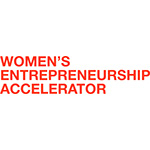NEW YORK & GENEVA–(BUSINESS WIRE)–Recognizing the intersecting relationship between innovation, technology, the digital space and gender inequality, the Women’s Entrepreneurship Accelerator (WEA) brought together senior representatives of its founding partners to mark its three-year anniversary with a timely discussion ahead of CSW67 on how to move the needle to create a more gender-inclusive innovation eco-system and to address the digital gender gap.
For the first time since its inception, CSW67 holistically examined the theme of innovation and technology from a gender perspective, presenting a unique opportunity to explore the gendered impacts of innovation and technology with recommendations that will set a course for a more inclusive and equitable digital economy.
With a mission to address the barriers faced by women entrepreneurs to advance the Sustainable Development Goals (SDGs), WEA is working to create an enabling digital innovation eco-system for women entrepreneurs to ensure countries reap the benefits of the digital transformation underway to achieve a more inclusive and sustainable world.
Hosted by the International Telecommunication Union (ITU) in Geneva, and convening WEA’s five other UN partners, the WEA anniversary event highlighted the need to invest in women entrepreneurs through digital to scale their businesses. The event underscored how the digital revolution offers tremendous opportunities to advance women’s economic status by opening up access to knowledge and international markets, and by enabling women to engage with a broader network. The event also served to highlight the risks posed by the digital transformation underway in perpetuating existing patterns of gender inequality. Key take-aways from the event included:
- Existing innovation and start-up eco-systems greatly lack gender diversity and are characterized by an uneven distribution of opportunity and financial resources.
- Women entrepreneurs are consistently faced with a lack of capital and investment to scale their businesses,1limited access to connectivity and to information and communication technologies (ICTs), as well as to opportunities to learn the critical skills necessary to compete in the digital economy.2
- Digital technologies, platforms and tools can also reinforce harmful gender stereotypes and discriminate against women and girls, unless they are designed to be safe, inclusive and accessible from the outset. For example, gender biases found in data sets and coded in AI algorithm products may lead to systems and services that replicate patterns of discrimination.
- Women and girls, and especially those who are at greater risk for multiple and intersecting forms of discrimination, are also the primary targets of online violence and abuse, which push them out of public participation, conversations and digital spaces more broadly. These are just some of the pressing challenges that call for gender-inclusive solutions in the digital age.
Did You Know:
- 37% of women in the world do not have access to the internet.3
- By 2050, 75% of jobs will be related to STEM areas.4
- Today, women hold just 22% of positions working in artificial intelligence and only 1 in 3 global researchers are women.5
- Only 28% of engineering graduates and 40% of graduates in computer science are women.6
- Women’s exclusion from the digital world has shaved $1 trillion from the gross domestic product of low- and middle-income countries in the last decade.7
Launch of the WEA Digital Innovation Challenge
The event officially launched the WEA Digital Innovation Challenge by ITU with the support of Mary Kay Inc, as a key opportunity to advance this agenda. The global challenge selects 10 digital best practices and digital solutions with potential to create a more gender-inclusive eco-system for start-ups and scale-ups. These winners will gain access to the Digital Innovation Eco-System Program where they will receive capacity-building training to help further refine their business plans as well as specialized mentorship and access to a network of change-makers.
Extracts from the anniversary WEA event:
- Doreen Bogdan-Martin, Director of International Telecommunication Union, spoke of the proven economic impact in bridging the digital gender gap, noting how in 2020 alone, potential revenues that were lost due to the lack of women’s access to entrepreneurial opportunities was calculated at $126 billion. Bogdan-Martin called for more to be done to develop a gender-inclusive digital eco-system through partnerships with business, civil society organizations, policy makers, regulators and UN sister agencies.
- Deborah Gibbins, Chief Operating Officer at Mary Kay, noted that while the pivot to digital provides a unique window of opportunity for women to innovate and scale their businesses, the digital acceleration can also perpetuate inequalities. To this end, Gibbins called for inequities to be addressed and the creation of an enabling environment for women to fully participate in the digital economy.
The Digital Innovation Challenge is the latest initiative of WEA. Throughout the event, WEA partners highlighted key areas of work they have advanced in support of women entrepreneurship since the inception of this transformative multi-stakeholder partnership.
- Online Entrepreneurship Skills Development
The International Trade Centre (ITC) highlighted the first-ever free online Entrepreneurship Certificate Programme developed in support of WEA and launched in January 2022. The 27 module–digital curriculum covers the 7 key stages of the entrepreneurial journey and is available in English, Spanish, French – and soon Arabic, Russian and Chinese. The curriculum is enriched with 200 videos and aims to teach aspiring and established entrepreneurs the skills to design and set up their businesses. Participants learn how to adopt an entrepreneurship culture, develop business ideas and learn start-up methodologies, prepare a business model, design a pitch, identify sources of funding, find the right partners and mentors, and build a team.
- Private Sector Advocacy on Gender-Responsive Procurement
UN Women recalled its work to advance gender-responsive procurement highlighting last year’s publication of an Advocacy Brief, with support from the UN Global Compact, titled Procurement’s Strategic Value. Why gender-responsive procurement makes business sense. The Brief presents compelling evidence of the benefits for strengthening the participation of women in private sector supply chains in realizing inclusive economic growth and sustainable development.
- Addressing the Barriers Faced by Women-Owned and -Led Start-ups
UN Women in the Europe and Central Asia (ECA) region spoke of the first ever Women’s Entrepreneurship EXPO – a bootcamp held across the region in 2021 to increase the capacities of women entrepreneurs to attract investment. This culminated in an Investors Pitch Finale in April 2022 where 25 women entrepreneurs from 9 countries (Turkey, Bosnia and Herzegovina, Georgia, Kazakhstan, Kosovo, Kyrgyzstan, North Macedonia, Moldova, and Serbia) pitched their early-stage start-ups and business plans to address one of the biggest challenges women entrepreneurs face in growing their businesses – access to capital. Following their pitches, investors offered financial support, mentorship and networking opportunities to women entrepreneurs to help scale their businesses. In November 2022, the second live Women’s Entrepreneurship EXPO, in partnership with PricewaterhouseCoopers, the European Bank for Reconstruction and Development and Yildiz Holding brought women entrepreneurs and business partners together to mobilize and take forward specific action to advance the landscape for women’s entrepreneurship development in the ECA region.
- Women Entrepreneurship Policy and Advocacy in the LATAM Region
The International Labour Organization (ILO) introduced its policy and advocacy work in support of women’s entrepreneurship development in LATAM. Over the course of 2020-2021, ILO conducted and released a Women’s Entrepreneurship Development (WED) assessment of policy conditions that impact women’s entrepreneurship focused on the commerce and industry sectors in Mexico City in support of WEA. The assessment included a series of 19 actionable recommendations to address the institutional gaps that exist for women entrepreneurs. In Brazil, ILO worked with Serviçio Nacional de Aprendizagem Industrial (SENAI) to advocate for women’s entrepreneurship development through a package of communication and awareness-raising campaigns, capacity-building workshops and events.
A recording of the event is available here.
About the Women’s Entrepreneurship Accelerator
The Women’s Entrepreneurship Accelerator (WEA) is a multi-stakeholder partnership on women’s entrepreneurship established during UNGA 74. It convenes six UN agencies, International Labour Organization (ILO), International Trade Centre (ITC), International Telecommunication Union (ITU), UN Development Programme (UNDP), UN Global Compact (UNGC), UN Women and Mary Kay Inc. to empower 5 million women entrepreneurs by 2030.
The ultimate goal of the initiative is to maximize the development impact of women entrepreneurship in achieving the Sustainable Development Goals (SDGs) by creating an enabling eco-system for women entrepreneurs around the world. The Accelerator exemplifies the transformational power of a multi-partnership of unique magnitude to harness the potential of women entrepreneurs. Learn more at we-accelerate. Follow us: Twitter (We_Accelerator), Instagram (@we_accelerator), Facebook (@womensentrepreneurshipaccelerator), LinkedIn (@womensentrepreneurshipaccelerator)
1 Research suggests that women entrepreneurs face $1.5 trillion financing deficits. MSME Finance Gap, International Finance Corporation, 2017. https://www.ifc.org/wps/wcm/connect/03522e90-a13d-4a02-87cd-9ee9a297b311/121264-WP-PUBLIC-M SMEReportFINAL.pdf?MOD=AJPERES&CVID=m5SwAQA
2 Of the estimated 2.9 billion people still offline, the majority are women and girls who are less likely to use a phone, access the Internet or have the skills to leverage digital technology. https://www.gsma.com/r/wp-content/uploads/2022/06/The-Mobile-Gender-Gap-Report-2022.pdf?utm_source=website&utm_medium=download-button&utm_campaign=gender-gap-2022
3 ITU (2022). Facts and Figures 2022 – The gender digital divide (itu.int)
5https://www.unesco.org/reports/science/2021/en/women-digital-revolution
7 UN Women. Progress on the Sustainable Development Goals. The Gender Snapshot 2022.
Contacts
Mary Kay Inc. Corporate Communications
marykay.com/newsroom
(+1) 972.687.5332 or [email protected]








